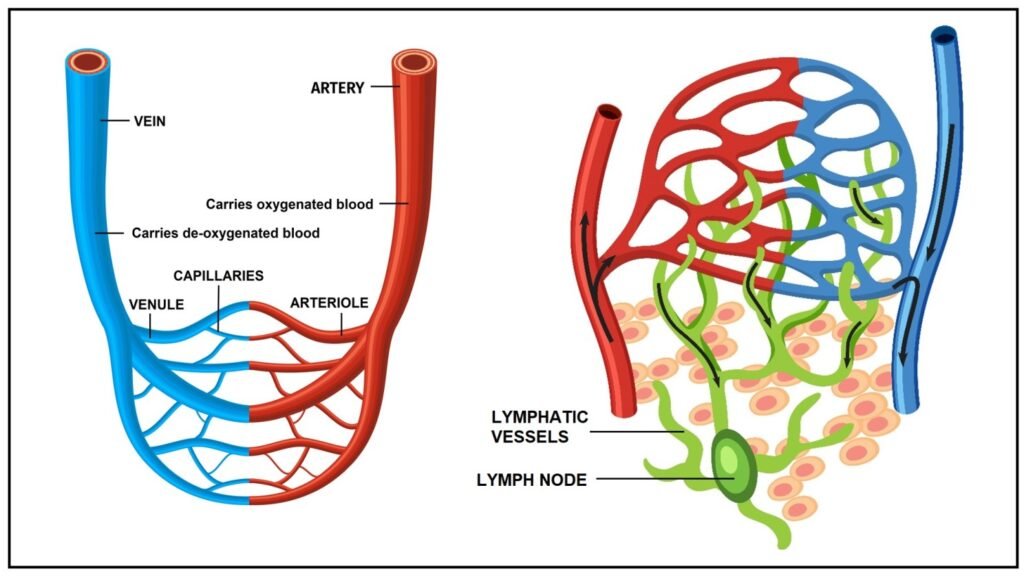
What Vessels Do Vascular Surgeons Treat?
The human body is an advanced machine with specialised systems for each task—like the digestive, nervous, and excretory systems. Similarly, we have a “plumbing” system, a network of specialised tubes that transport blood and fluids between the heart and various body parts.
This intricate system of vessels is called the circulatory system, and vascular surgeons are experts in maintaining vascular health & treating its diseases.
The Circulatory System and Vessels
The tubular structures or the ‘pipes’ of this plumbing system are called ‘blood vessels’ and are of three primary types – arteries, veins and capillaries.
Additionally, the lymphatic vessels constitute the lymphatic system which functions closely with the blood vessels to maintain fluid balance.
What Are Some Common Conditions Affecting the Vessels?
Some of the most common conditions of the vessels, treated by a vascular surgeon are:
Arterial Diseases:
- Peripheral Arterial Diseases (PAD) – Narrowing of the artery in the limbs reducing blood flow.
- Arterial Aneurysms – Bulging or ballooning of the artery due to weakening of the wall
- Carotid Artery Disease – Narrowing or blockage of the carotid arteries (major vessel in the neck), which can lead to strokes.
- Diabetic Foot – A condition where poor circulation and nerve damage in diabetic patients lead to foot ulcers, gangrene and in severe cases, amputation.
Venous Diseases
- Varicose Veins – Swollen, tortuous veins in the leg that are often visible on the skin.
- Deep Vein Thrombosis – Formation of blood clots (thrombus) in the deep veins, often in the legs.
- Varicocele – Enlargement of the veins within the scrotum, often causing pain or fertility issues.

